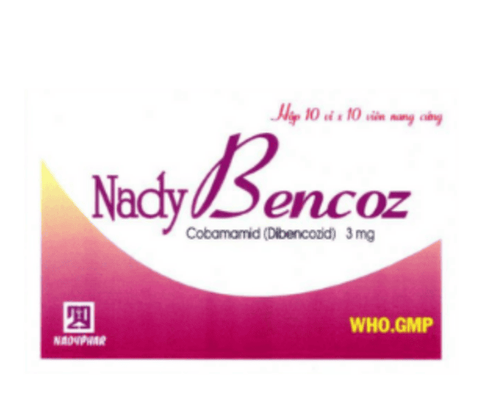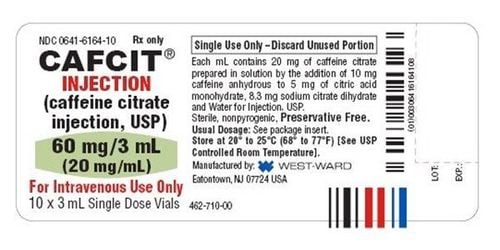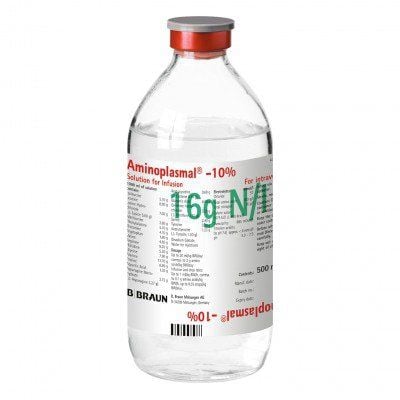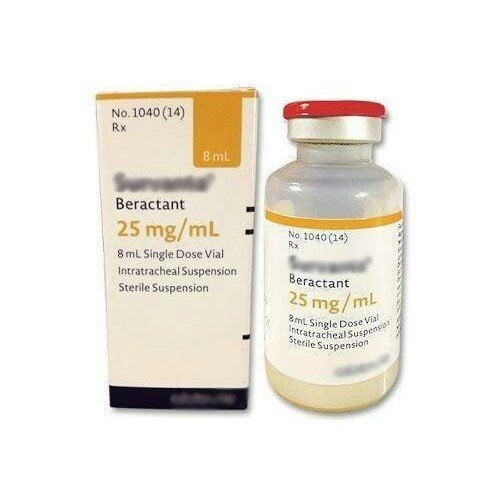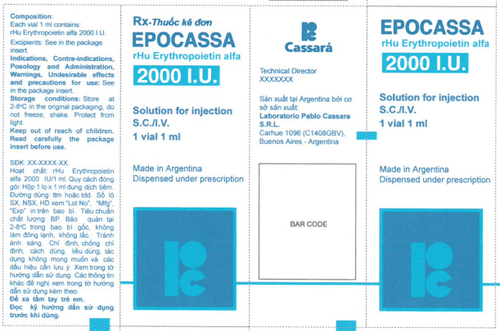This is an automatically translated article.
The article was professionally consulted by Doctor of Pediatrics - Neonatology - Vinmec Nha Trang International General Hospital.Premature babies face a number of health problems due to various causes such as immature lungs, which can easily lead to respiratory failure. The following article will provide you with useful information about some of the medical conditions that preterm infants may have.
1. Blood problems
Anemia Premature babies often have anemia. This means that the baby does not have enough red blood cells in the blood. Normally, the fetus stores iron during the last months of pregnancy and uses that iron to make red blood cells after birth. Babies born too early may not have enough time to store iron.Besides, blood loss due to frequent blood tests can also contribute to anemia. Anemic children can be treated with dietary iron supplements, drugs that increase red blood cell production or, in some cases, need a blood transfusion.
Sepsis Some infants are admitted to the NICU to determine if they have sepsis.
Certain tests, cultures, and X-rays can help diagnose this condition. These tests may be recommended if a child has symptoms such as an unstable temperature, high or low blood sugar, breathing or digestive problems, or low blood pressure.
Sepsis is usually treated with antibiotics and the child needs to be closely monitored for improvement in symptoms.
2. Respiratory problems
Premature babies often have breathing problems because their lungs are not fully developed. Babies born at full term can also have breathing problems from complications of labor and delivery, birth defects, and infections. Infants with breathing problems may be given medication, a mask to breathe, or a combination of these two treatments.Apnea Premature babies sometimes don't breathe regularly. The child may take a long breath, then a short breath, then pause for 5 to 10 seconds before starting to breathe normally. This is called periodic breathing. It is usually not harmful and as the baby gets older it will go away.
Premature and sick babies may also stop breathing for 15 to 20 seconds or more. This interruption in breathing is called apnea. This symptom may be accompanied by bradycardia. Infants hospitalized in the Neonatal Intensive Care Unit (NICU) are continuously monitored for apnea and bradycardia (commonly referred to as "A's and B's").
Sensors placed on the baby's chest send information about the baby's breathing and heart rate to a machine placed near the incubator. If the child has stopped breathing, the alarm will start beeping.
Then the nurse will stimulate the baby to breathe by flicking or touching the soles of the baby's feet. The neonatologist may consider giving the baby medicine and or using some special equipment, such as Continuous Positive Airway Pressure (CPAP) to bring air to the baby's lungs through a small tube. inserted from the nose or inserted into the trachea.
Bronchopulmonary dysplasia (BPD) This chronic lung disease is most common in premature infants who have been treated for neonatal respiratory distress syndrome (RDS).
Newborns with RDS have immature lungs. Sometimes babies need to use a mechanical ventilator to help them breathe. Some infants treated for RDS may develop symptoms of BPD, including fluid in the lungs, scarring, and lung damage.
Newborns with BPD are treated with medication to make breathing easier. In addition, these children also need to gradually wean from the ventilator. Children's lungs usually improve during the first two years of life, but some children develop chronic lung disease that resembles asthma.
BPD also sometimes occurs in full-term infants after they have pneumonia or other infections.
Persistent pulmonary hypertension of the newborn (PPHN) An infant with PPHN cannot breathe normally because he or she has high pressure in the lungs. At birth, the blood vessels in the lungs normally dilate in response to the first few minutes of breathing in air and allow blood to flow through the lungs. This is how the blood picks up oxygen from the air.
In children with PPHN, this reaction does not occur. This leads to a lack of oxygen in the blood and sometimes leads to other complications including brain damage. Children with PPHN often have birth defects (such as heart defects) or have had complications at birth.
Newborns with PPHN often need to be on a ventilator to help them breathe. Your baby may be given a gas called nitric oxide through a tube placed in the windpipe. This treatment can help the blood vessels in the lungs dilate and improve breathing.
Pneumonia in premature babies This lung infection is common in premature and weak babies. Doctors may suspect pneumonia if a child has symptoms such as shortness of breath, changes in breathing, blood tests that show low oxygen levels, or if a child has an increased number of apnea episodes.

Viêm phổi ở trẻ sinh non là bệnh lý thường gặp
Sometimes the doctor may insert a tube into the lungs to take a sample of lung fluid. This fluid is then tested to see what bacteria or virus is causing the infection, so your doctor can choose the most effective medication to treat it.
Newborns with pneumonia are usually treated with antibiotics and may need supplemental oxygen until the infection clears up.
Newborn respiratory distress syndrome (RDS) Babies born before 34 weeks of age often have this serious breathing problem. RDS is sometimes called Respiratory Distress Syndrome (RDS).
Newborns with RDS lack a chemical mixture called surfactant, which helps keep the tiny air sacs in the lungs from collapsing. Surfactant treatment helps babies with this condition breathe easier.
Newborns with RDS can also be treated with Continuous Positive Airway Pressure (CPAP) to deliver air through small tubes that are inserted into the baby's nose or windpipe.
Like surfactants, CPAP helps keep the small air sacs in the lungs from collapsing. CPAP helps the child breathe, but does not breathe for the child. Babies with more severe illness may need to be temporarily placed on a ventilator while their lungs recover.
3. Congenital heart defects
Heart defects are present from birth. Heart defects originate in the early stages of pregnancy when the heart is forming in the womb.Slow heart rate Premature babies sometimes breathe irregularly. Intermittent apnea, also known as apnea, can cause a slow heart rate. This is a sign of a heart rhythm problem. Your child will need medication and breathing support.
Coarctation of the aorta The aorta is the large artery that carries blood from the heart to the rest of the body. In this condition, the aorta may be too narrow for blood to flow.
To treat this birth defect, the Surgeon may cut out the narrowing and stitch the two open ends together, replace the ligation with an artificial material, or patch it with a portion of the blood vessel taken from elsewhere in the body. Sometimes, this narrowed part can be widened by inflating a balloon on the tip of a catheter that is inserted into the aorta.
Heart valve abnormalities Some babies are born with narrowed, closed, or blocked heart valves, and this condition makes it impossible for blood to flow normally. Some infants may need a catheter (artificial graft) to allow blood to pass through the blockage until the baby is old enough to have the valve repaired or replaced.
And ductus arteriosus (PDA) PDA is the most common heart problem in premature babies. Before birth, most of the fetal blood travels through the ductus arteriosus, from one blood vessel to another, rather than through the lungs. This is because the lungs have not been used.
This tube will close soon after birth, so that blood can follow the normal route from the heart to the lungs and back. If this tube does not close, blood will not flow correctly. In some cases, drug treatment can help close this tube. If this does not work, the child will be indicated for surgery to close the tube.
Defect of the septum A septal defect is when a child has a hole in the septum (septum) that divides the upper or lower chambers of the heart. Because of this hole, blood cannot flow as it should and makes the heart work harder.
The surgeon can close the hole by stitching or patching. Small holes may heal on their own and may not need repair.
Tetralogy of Fallot This condition is a combination of four heart defects that prevent blood from reaching the lungs. As a result, a baby's skin is sometimes blue due to lack of oxygen (cyanosis) and the child may not grow well. New surgical techniques allow this complex heart defect to be repaired at an early age.

Trẻ sinh non có thể gặp một số vấn đề về tim như hẹp động mạch chủ, dị tật vách ngăn,...
4. Digestive tract problems
Experts agree that breast milk is a nutritious source of many important and wonderful health benefits for babies, especially those born prematurely or with illness. Children need good nutrition to grow and become healthier. But babies may need to be fed differently for a while, before they're ready to breastfeed or bottle feed.Very small or sick babies are often given parenteral nutrition. A small needle is placed into a vein in your baby's arm, leg, scalp, or navel, and from this line, the baby receives sugar (glucose) and needed nutrients through a vein.
As soon as the baby is strong enough, the baby will be given breast milk or formula through a tube placed through the nose or mouth to enter the stomach or intestines. This procedure is called gavage feeding. When the baby is able to suck and swallow effectively, the feeding is stopped and the baby can breastfeed or bottle feed.
Congenital cleft palate This is a birth defect of the abdominal wall. The baby's intestines, and sometimes other organs, are outside the baby's abdomen. Your baby will need to undergo surgery to put her organs back in place and close the abdominal wall.
Hypoglycemia Hypoglycemia is low blood sugar (glucose). This symptom is usually diagnosed soon after birth.
Usually, premature infants and children of mothers with diabetes are evaluated for hypoglycemia. Early feedings and intravenous fluids will help prevent and treat hypoglycemia.
Neonatal necrotizing enterocolitis (NEC) This dangerous intestinal problem is common in premature babies. The intestines can be damaged when the blood supply is reduced. Bacteria that normally live in the gut will invade the damaged area and cause more damage.
Babies with NEC also have feeding problems, bloating, and other complications. If tests show that the child has NEC, the child will be given intravenous food to give the intestines time to heal. Sometimes damaged sections of bowel must be surgically removed.
5. Other matters
Inability to control body temperature Babies born too small and born too early often have difficulty controlling their body temperature. Unlike healthy, full-term babies, premature babies don't have enough fat to prevent body heat loss.Newborns in the NICU are placed in an incubator or warm light immediately after birth to help them control their temperature. A small thermometer is placed on the baby's belly to measure the baby's body temperature and regulate the temperature in the incubator. Children will grow faster when maintained at a normal body temperature (98.6 degrees F.).
Intraventricular Bleeding (IVH) IVH refers to bleeding in the brain and is most common in premature babies. Bleeding usually occurs in the first four days postpartum.
Bleeding usually occurs near the fluid-filled spaces (ventricles) in the center of the brain. An ultrasound examination of the fontanelle can reveal whether a child has a brain bleed and its severity.
Bleeding in the brain is usually numbered 1 to 4, where 4 is the most severe. Most bleeding in the brain is mild (grades 1 and 2) and goes away on its own with little or no later problems.
Heavy bleeding can make it difficult for your baby to treat and may have complications later in life. Some children will need to be carefully monitored their development throughout infancy and childhood.
Jaundice Newborns with jaundice have yellow skin and eyes. Jaundice occurs when the liver is too immature or diseased to be able to remove a waste product called bilirubin from the blood.
Bilirubin is formed when old red blood cells are broken down. Jaundice is especially common in premature babies and babies whose blood types are incompatible with their mothers.
Jaundice itself is usually not harmful to the baby. But very high bilirubin levels can lead to more serious problems, especially for premature babies.
For this reason, your baby's bilirubin level is checked regularly. If it is too high, the child will be treated with a special green light to help the body break down and remove bilirubin.

Trẻ sinh non thường có nguy cơ bị vàng da
Retinopathy of prematurity (ROP) ROP is the abnormal growth of blood vessels in the eye. Pathology occurs most often in infants born before 30 weeks of gestation.
ROP can lead to bleeding and scarring, leading to damage to the retina of the eye. This can lead to vision loss.
An ophthalmologist can examine a child's eyes for signs of ROP. Most mild cases will heal on their own without treatment, with little or no loss of vision. In more severe cases, an eye doctor may perform laser therapy or perform a procedure called cryotherapy (freezing) to remove abnormal blood vessels and scars. Both treatments help protect the retina.
Vinmec Times City International General Hospital has saved thousands of premature babies over the years. Vinmec has mastered the measures to feed very premature babies, being the first hospital in the North to take care of babies born 24 weeks premature. The procedures for caring and nurturing premature babies in particular and newborns with diseases in general at Vinmec bring about the same efficiency as in advanced countries, increasing the chances of babies being saved and healthy living. premature birth, increasing the chances for infertile families.
Advantages in treatment and care of premature babies at Vinmec include: Modern equipment: Normal ventilator, high frequency ventilator, CPAP ventilator, incubator, good infection control ability, ensuring Protecting a safe environment for children
Not only taking care of premature babies, Vinmec also successfully operated and saved many babies' lives with complex birth defects.
If you have a need for medical examination at Vimec Health System nationwide, please make an appointment on the website to be served.
Please dial HOTLINE for more information or register for an appointment HERE. Download MyVinmec app to make appointments faster and to manage your bookings easily.
Reference source: babycenter.com



